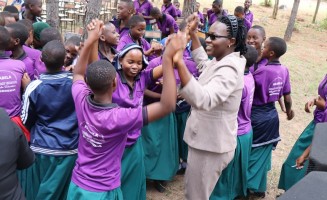Background
Education is one of the priority sectors specified in the National Development Vision 2025, and in the Education Training Policy (ETP, 2014) through which the Government has committed to providing 11 years of compulsory free basic education for all from pre-primary to ordinary secondary education (Form four level). The recently developed Education Sector Development Plan (2016/17 – 2020/21) is well aligned with the Sustainable Development Goal 4 on Education (SDG 4).
Nonetheless, Tanzania has made great achievements on enrolment for basic education (pre-primary, primary and lower secondary); free basic education policy being a contributing factor. However, there are high number of out of school children due to high dropout rates and low retention, particularly in remote rural. Girls have higher enrolment and retention rates in both primary and lower secondary education, but lag behind boys in the transition rate from primary to secondary levels.
The ratio in primary and lower secondary schools for girls to boys is about 1:1 while in upper secondary and higher education is 1:2. This shows a decreasing trend for the progression of girls from one higher level to the other. Although drop out affects both boys and girls, girls have a greater possibility for dropping out of school. Socio-cultural practices such as early marriage, heavy burden of domestic chores and limited access to information on SRH among boys and girls are among the factors causing high school dropout rates that mostly results from early pregnancies and truancies. Other factors include long distance to and from school, child labour, and gender based violence at family level, community and school. Thus, despite the government’s efforts to provide free basic education to all children, the transition rate from primary to secondary education, especially for girls, remains a challenge.
In response to the above challenges, the UNESCO-UNFPA-UN Women Joint Programme on “Empowering Adolescent Girls and Young Women through Education in Tanzania”, applies a multi-sectoral approach for an enhanced effort to ensure that girls attains their educational aspirations and young women acquire knowledge, attitudes and life skills that will equip them to become productive and fulfilled citizens while mobilizing support for girls’ education at family and community levels.
Funded by the Republic of Korea through its Korean International Cooperation Agency (KOICA), the Joint Programme is within the framework of “Better Life for Girls Initiative”, a global initiative that aims to put girls on the path of sustainable empowerment.
Project's Goal
To promote gender equality and the empowerment of adolescent girls and young women in selected regions of Tanzania through holistic and comprehensive approaches to quality education
Expected Results
- Access, quality and relevance of education for adolescent girls and young women in Tanzania improved.
- Multi-sectoral functional systems in place for increased access to quality, age and cultural appropriate sexual and reproductive health (SRH) information & services.
- Societal attitudes are transformed and governance structures and mechanisms mobilized to become more conducive to the empowerment of adolescent girls and young women through education.
- Data and evidence based gender-responsive education policies and action is built.
Through the trainings in this project, I have been inspired to study science subjects. My dream is to become a doctor and help in inspiring other girls to pursue science subjects so that we may have more female doctors and engineers



